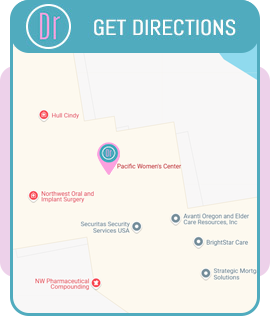LEEP Surgery Specialist in Eugene OR
LEEP (loop electrosurgical excision procedure) is a surgical treatment frequently used to remove abnormal cells from the cervix. When abnormal cells are discovered during a colposcopy or on a Pap test, sleep is usually advised. The advantages of LEEP include a quick recovery period, a low risk of complications, and a high success rate in eliminating abnormal cells. It is a quick and effective process. Visit us today, Dr. Richard Beyerlein MD, CPI, FACOG and Tamara A. Stenshoel, MD, FACOG will provide you with proper consultation and treatment. For more information, contact us or schedule an appointment online. We are located at 911 Country Club Rd. Suite 222, Eugene, OR 97401.




Table of Contents:
What is a loop electrosurgical excision procedure (LEEP)?
Does a LEEP procedure require anesthesia?
How often do you need Pap after LEEP?
How long does it take to recover from a LEEP procedure?
A loop electrosurgical excision procedure (LEEP) removes cells and tissue from a woman’s lower genital tract using a wire loop heated by electric current. It is used to diagnose and treat abnormal or cancerous conditions.
The lower genital tract consists of the cervix and vagina. A cervix is the narrow, lower part of the uterus, while a vagina is its connection to the vulva.
With LEEP, a thin layer of abnormal tissue is cut away by passing an electric current through a fine wire loop. Tests will be conducted on this tissue in the lab. By removing abnormal cells, LEEP can also promote the growth of healthy tissue.
When abnormal cells are found during a Pap test, or when cervical or vaginal problems are found during a pelvic exam, LEEP can be performed. Cervical and vaginal cancer can also be detected by LEEP. Cells that appear abnormal, but aren’t yet cancerous, are called precancerous cells. There is a possibility that these abnormal cells can be the first sign of cancer that could develop years later.
A LEEP procedure is a minor procedure that may be performed under either general anesthetic or local anesthetic. In the event that it is performed under local anesthetic, the cervix will be injected directly with the anesthetic. By doing this any bleeding in the area can be controlled.
We require you to attend our clinic prior to your surgery if you will be having a general anesthetic. We will be able to complete the necessary paperwork this way. The day of your surgery, you must also refrain from eating and drinking for six hours before admission. Following the anesthetic, you should ask someone to drive you home after five hours in the hospital.
You will be required to rest for one to two hours after undergoing a general anesthetic. In the case of local anesthetics, you will not have to wait.
LEEP is both a diagnostic tool and a treatment method. By removing the abnormal cells from the tissue, cervical dysplasia can often be cured, for instance.
The procedure may have to be repeated in some cases if the cells cannot be completely removed. It is also possible that you will need an additional LEEP if abnormal cells return. If you have a high-risk strain of the human papillomavirus, or HPV, you’re more likely to have a recurrence. Without treatment, cervical dysplasia can lead to cervical cancer due to changes in the cells caused by HPV.
To ensure cervical dysplasia does not progress to cervical cancer, you may need frequent Pap and HPV tests to monitor your infection.
Regardless of the reasons for the test, if you have LEEP, you should have a Pap test every four to six months or as often as your doctor recommends. Your doctor and you can decide how often you should schedule future Pap tests once your results are normal a few times.
A day or two after LEEP, you might experience mild cramping. It is also likely that you will have watery discharge for several weeks. There may be a little blood in it, and it may be heavy. The smell may also be a little unpleasant. The vulva can be washed with plain water several times a day, but do not wash or put anything inside the vagina. Replace the water you lose in your discharge by drinking plenty of fluids. After LEEP, your cervix takes four to six weeks to heal fully.
Pacific Women’s Center provides LEEP surgery. LEEP is both a diagnostic tool and a treatment method that detects and cures certain conditions. Let our team of healthcare professionals help keep your health in check today! For more information, contact us or schedule an appointment online. We are located at 911 Country Club Rd. Suite 222, Eugene, OR 97401. We serve patients from Eugene OR, Springfield OR, Cottage Grove OR, Lowell OR, Coburg OR, Creswell OR, Junction City OR, and surrounding areas.

ADDITIONAL SERVICES YOU MAY NEED
❱ Abdominal Hysterectomy
❱ Bladder Lift Surgeon Q&A
❱ Cervical Cone Biopsy
❱ Colposcopy
❱ Endometrial Ablation
❱ Endometrial Biopsy
❱ Female Sexual Dysfunction
❱ Gynecological Surgery
❱ Gynecology
❱ Hormone Therapy
❱ Vaginal Hysterectomy
❱ Endometriosis Diagnosis & Care



